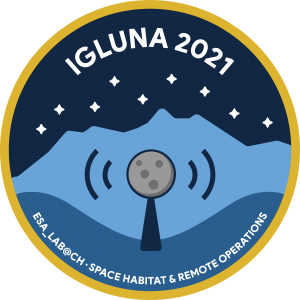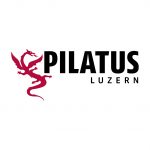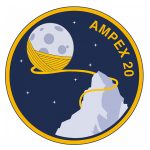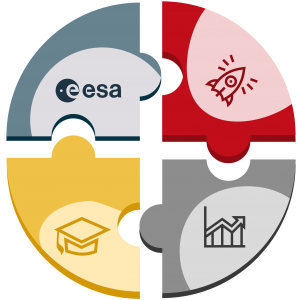IGLUNA
ABOUT
PAST EVENT
webinar

“IGLUNA 2021 student projects: outcome and next steps”
Thursday 23 September 2021
15.00 – 16.00 CET
The goal of this webinar was for the IGLUNA 2021 student teams to pitch their projects, sharing their Field Campaign results and next steps. The participants could interact with all the student teams and get to know their projects as well as taking the chance to expand their network, share their expertise, and explore potential collaborations with the students.
Programme:
- 15.00 – 15.05 Introduction by Tatiana Benavides, IGLUNA Project Manager
- 15.05 – 15.30 Pitches of the 12 student projects
- 15.30 – 15.55 Q&A interactive session
- 15.55 – 16.00 Closure
ABOUT
IGLUNA is an interdisciplinary platform where students from worldwide universities design and collaborate on innovative projects for the future of space exploration and the improvement of life on Earth.
During the project, university students apply their knowledge to solve a technical challenge, to sustain life in an extreme environment, increasing in parallel the maturity of technologies relevant to the space domain. A board of experts from space agencies, renowned international companies and research institutions are mentoring the students throughout the year to consolidate the projects for the Field Campaign.
IGLUNA is part of the ESA_Lab@ initiative launched by ESA to create a hub for innovation between universities, research organizations and industry. Space Innovation coordinates the IGLUNA platform and leads the main systems engineering activities, coaches the students teams, organises the events, and communicates to the general public.

IGLUNA 2021

IGLUNA 2021 is based on the heritage of IGLUNA 2019 & 2020 and offers students opportunities to participate in an international, collaborative project on a visionary space topic. The purpose of the mission is to demonstrate technologies to sustain life in an extreme environment for a space habitat and to operate the novel technologies through a remote control mode.
IGLUNA 2021 has the objective to enhance the most relevant IGLUNA 2020 projects by building-up on the previous achievements, to include new actors with new content, and to involve more industrial actors. The multidisciplinary nature of this project covers a full range of topics, going from the habitat conception and construction to life support systems, communication and navigation, power management, as well as human well-being and science.
The project starts on September 2020 where each team of students begins to develop modular contributions during two academic semesters. The students will eventually gather from the 16-25 July 2021 in Lucerne for the Field Campaign in order to demonstrate their technologies on the Mount Pilatus and test their projects remotely from the VERKEHRSHAUS – Swiss Museum of Transport.
milestones
- kick-off event
- preliminary design review
- critical design review
- midterm event
- readiness review
- field campaign
- 9-11 September 2020
- 11-20 November 2020
- 8-19 February 2021
- 2-4 March 2021
- 24 May-4 June 2021
- 16-25 July 2021
An expert board is evaluating the students during the three main reviews: Preliminary Design Review, Critical Design Review and Readiness Review.
The expert board is made of over 45 experts from space agencies, such as the European Space Agency and NASA, renowned international companies and research institutions.
These professionals are mentoring the students with their strong knowledge and expertise to consolidate the projects for the test bed in July. During the reviews, the students must not only prove scientific and technical relevance, but also demonstrate the strategic feasibility and long-term evolution of their technologies.
our sponsors
IGLUNA at the CDF
In March 2020, IGLUNA students have been invited to submit their projects for a lunar mission on OSIP – “Open Space Innovation Platform” – of the European Space Agency.
The most advanced and scientifically valuable projects were then selected by the Concurrent Design Facility (CDF) and Space Innovation. The students have since worked together on their mission until the final review of the Phase 0 by the CDF experts on 10 and 15 December 2020. The CDF is hosting the technical teams supporting the preparation of the agency’s future space missions.
Selected teams:

The goal of the mission named “SCALE” is to operate for 1 lunar day (i.e. 14 terrestrial days) in order to test a module for the automated cultivation of plants, a device to produce fibres from lunar soil and a lunar communication system. SCALE will operate aboard a Lunar Lander and the experiments are planned to be brought back to Earth when the mission is complete. Estimated launch date: 2028.
AN ESA_LAB@ INITIATIVE
IGLUNA is part of the ESA_Lab@ network gathering emerging space actors all over Europe. ESA_Lab@ is an initiative launched by the European Space Agency in order to create a hub for disruptive innovation between universities, research organisations and industry.
Being part of this initiative enables IGLUNA to get support from the European Space Agency (ESA) through open data access policy and experts.
















